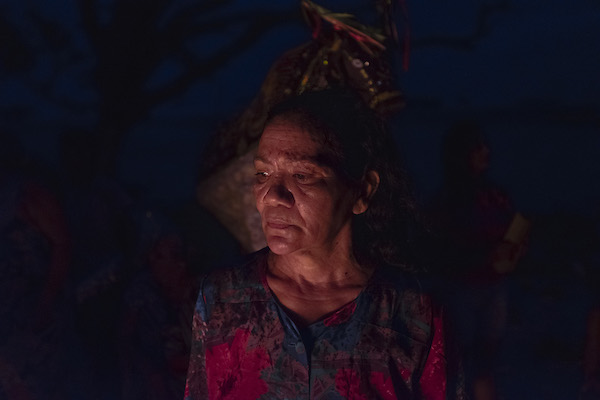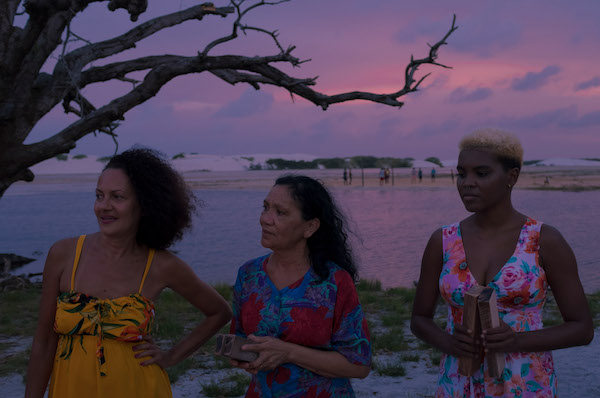
Shot largely in Brazil’s Lençóis Maranhenses park, Betânia follows a widow as she returns after many years to her ancestral home. The debut feature for writer and director Marcelo Botta, it screened in this year’s Panorama section of the Berlin International Film Festival.
The episodic script relies heavily on music—folk, dance, pop—using it as a jumping off point to explore Maranhão, a Brazilian state near the Amazon. Due in part to climate change, desert sands spread across the region, while pollution damages local fishing.
Betânia, the widow (played by Diana Mattos), is pressured by her family to leave her primitive home for a city also named Betânia. There she becomes increasingly involved with her daughters Irineusa (Michelle Cabral) and Julecia (Rosa Ewerton Jara), son-in-law Tonhão (Caçula Rodrigues), and neighbors and lovers mixed up in their lives.

The script offers several story lines. One daughter is consumed by religion; a grandson tries to enroll in an exclusive school; a gay subculture tests villagers’ tolerance. Events unfold in dance clubs, on beaches, in cinderblock houses, over meals.
The longest narrative passage follows Tonhão, who scratches out a living guiding tourists through dunes to lagoons. Shifting sands make each journey a calculated risk. A wrong turn could strand tourists beyond help.
Botta, a documentary filmmaker, and cinematographer Bruno Graziano capture the atmosphere and spirit of people living in a world of unimaginable beauty. One drone shot sweeps over fields of blooming yellow flowers surrounded by dunes, an unforgettable image.
Diana Mattos gives an assured performance as Betânia; the other leads are tuned into Botta’s easygoing vibe, apart from annoyingly caricatured tourists. Betânia is a pleasant sojourn into a fascinating environment, although Botta’s efforts to tie the movie to regional folktales aren’t totally persuasive.
Credits: Written and directed by Marcelo Botta. Produced by Gabriel Di Giacomo, Marcelo Botta. Executive Producers: Luciana Coelho, Isabel Abduch. Director of Cinematography: Bruno Graziano. Edited by Márcio Hashimoto. Music: Marcelo Botta, Tião Carvalho, Edivaldo Marquita, Misael Pereira, Henrique Menezes, A Barca.
Cast: Diana Mattos (Betânia), Tião Carvalho (Ribamar), Caçula Rodrigues (Tonhão), Nádia D’Cássia (Vitória), Ulysses Azevedo (Antonio Filho), Michelle Cabral (Irineusa), Vitão Santiago (Xambim), Rosa Ewerton Jara (Julecia), Enme Paixão (DJ Kaya).
Photos: Top Diana Mattos; Center Rosa Ewerton Jara, Diana Mattos, Nádia D’Cássia. © Felipe Larozza / Salvatore Filmes. Screened in Berlinale Panorama 2024.


